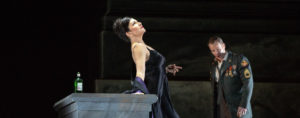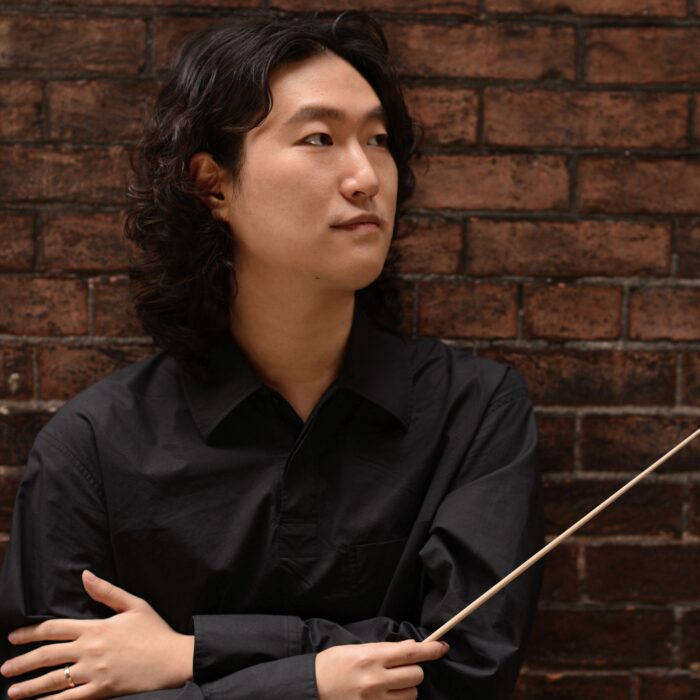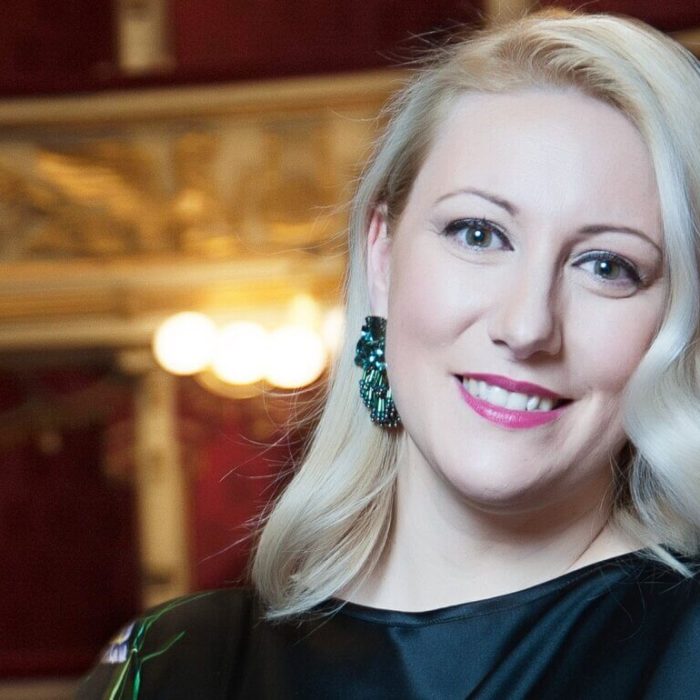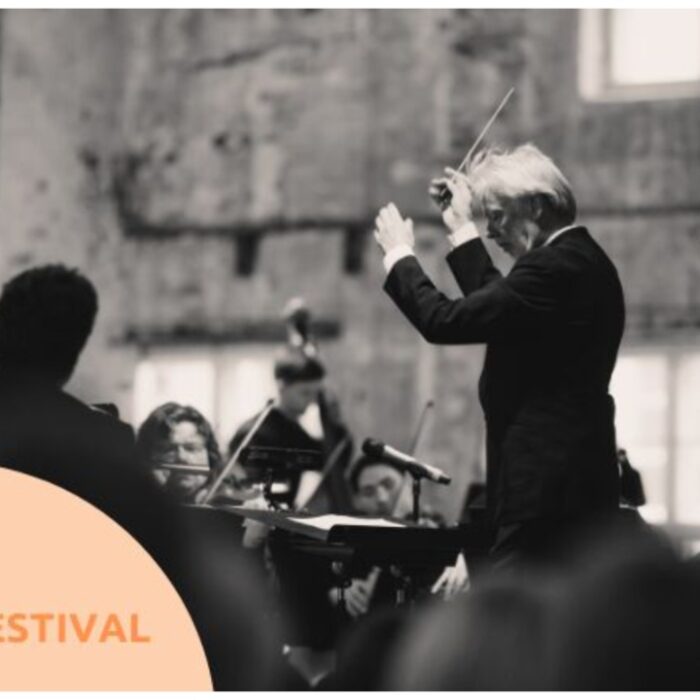
Metropolitan Opera 2019-20 Preview: The History of Handel’s Operas On NYC’s Iconic Stage
By Arya Roshanian(Credit: Marty Sohl / Metropolitan Opera)
The Met has a long, celebrated history with the works of Verdi, Puccini, and Mozart. But not so much with Baroque composers. In the Met’s 140-year history, the company has only presented four operas by Handel (four and a half, if you count the pastiche “The Enchanted Island”). But that’s all slowly changing. The Met will present more and more operas by the beloved German-English composer in its coming seasons, starting with “Agrippina” on Feb. 6, 2020.
“Agrippina” joins the elite rank of Handel operas at the Met, in a new(ish) production by David McVicar. Joyce DiDonato, renowned for her interpretations of Handel heroines and heroes, tackles the monumental (and challenging) title role.
Given the sparse history of Handel at the Met, here is a concise summary of all things Handel at the Metropolitan Opera.
Rinaldo
The Met didn’t present its first Handel opera until January 1984. Superstar Marilyn Horne starred in “Rinaldo” as the title role, alongside Danno Raffanti, Samuel Ramey and Edda Moser. The production was a rental from the National Arts Center in Canada, with music edited by Martin Katz. Of the performance, New York Times critic Donal Henahan noted that it was an evening of important debuts, with Ramey making his first Met appearance as Argante.
Based on a portion of Torquato Tasso’s epic poem ”Gerusalemme Liberata,” “Rinaldo” marked the first of Handel’s “magic” operas. The performance was a massive success after its 1711 premiere, and the Met’s premiere seemed to be just as thrilling. Henahan wrote in his initial review: “…any Baroque opera needs spectacular stage effects if it is to come anywhere close to the spirit of that age of grand theatrical gestures. Mark Negin … provided a great deal of childish delight with a charming fire-breathing dragon, a waterfall of plastic ribbons, towers that opened out to become gardens – and the other way around – and scenes that magically transformed themselves in clouds of fog.”
Samson
Just two seasons later, tenor Jon Vickers starred in the Met’s production of “Samson,” an oratorio adapted for the staged by Elijah Moshinsky. The star-studded cast included Leona Mitchell (Delilah), John Macurdy (Manoah), Paul Plishka (Harapha) and Carol Vaness (Philistine Woman/Israelite Woman) in eight performances. “Samson” isn’t performed regularly, and the choice to present this 1743 piece was entirely for Jon Vickers.
Henahan wrote for the New York Times: “Handel went out of his way to emphasize the work’s theatrical aspect, casting artists who were primarily known as actors rather than great singers…So, the question becomes not why ‘Samson’ appeared at the Met, but how, and how effectively.”
Giulio Cesare
The Met has celebrated no other Handel opera more frequently than “Giulio Cesare.” Since its Met premiere in September 1988 (with Tatiana Troyanos in the title role and Kathleen Battle as Cleopatra), it’s been staged three more times: in 1999, 2007 and 2013.
Arguably Handel’s most performed work (besides “Messiah”), the Met presented John Copley’s production from English National Opera for the first three runs. Jennifer Larmore took on the title role in 1999, with Sylvia McNair as Cleopatra, Stephanie Blythe as Cornelia and David Daniels as Sesto. The 1997 production starred Daniels, this time as Cesare. He performed alongside Ruth Ann Swenson as Cleopatra, Patricia Bardon as Cornelia and Alice Coote as Sesto.
New York audiences finally saw a new “Giulio Cesare” in 2013, when David McVicar’s production from Glyndebourne Festival Opera crossed the pond. Daniels again sang the title role, with Natalie Dessay as Cleopatra in one of her final Met appearances. Bardon and Coote reprised their roles as Cornelia and Sesto, respectively.
Rodelinda
Runner-up for most Met performances is Handel’s 1725 opera “Rodelinda,” which saw Stephen Wadsworth’s new production in 2004, 2006 and 2011. Leaning away from the idea that Handel operas are better performed in smaller houses, New York Times’ Anthony Tommasini wrote: “One choice for the Met would be simply to acknowledge that it has the wrong house for Handel, and that’s that. The alternative, though, is to find the right work, the right cast, and the right way to present a Handel opera effectively, which the company has done with its premiere production of Handel’s ‘Rodelinda,’ …”
The Met always taps a huge star to sing these Handelian titles roles. But it takes an even bigger star to have an entire production revolve around a singular figure. Wadsworth’s production will forever be associated with Renée Fleming, who sang Rodelinda in all three Met productions. David Daniels was again tapped, this time to sing Bertarido in 2004. Andreas Scholl assumed the role in 2006 and 2011.
Agrippina
Given the relevant political undertones of the piece, the Met couldn’t have picked a better time to stage “Agrippina.” In a recent interview with the New York Times, Bicket comments on the pieces’ political relevance — and not just in 2020. He said: “Even in the early 18th century, the piece was being used as a very thinly disguised satire on the state of Venetian politics. None of this changes: the way people lie to get into power, and lie even more to stay in power. How they use sex as a weapon. These are eternal truths. On it goes.”
McVicar’s production, which premiered at Théâtre Royal de la Monnaie in 2013, receives a slight facelift for Met audiences. Baroque specialist Harry Bicket leads the performance. Alongside DiDonato is Kate Lindsey as Nerone, Brenda Rae as Poppea, Iestyn Davies as Ottone, Duncan Rock as Pallante and Matthew Rose as Claudio.
Categories
News

